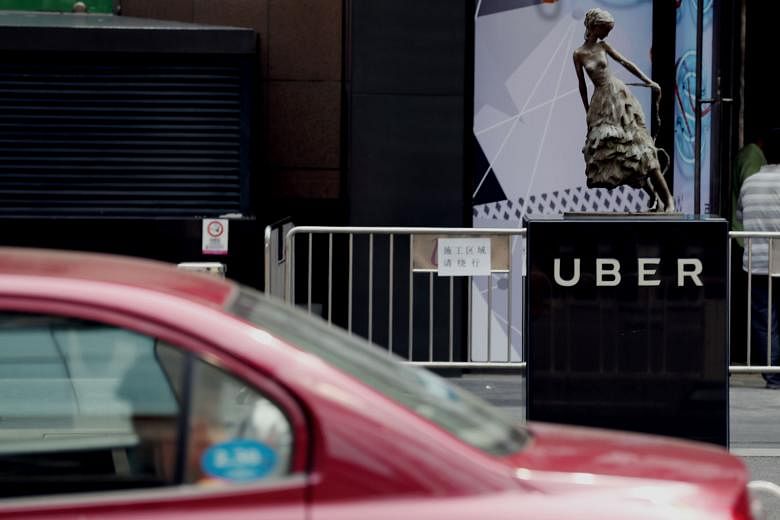BEIJING • Didi Chuxing, the dominant ride-hailing service in China, yesterday said it will acquire Uber Technologies' operations in the country, ending a battle that has cost the two companies billions in their competition for customers and drivers.
Didi will buy Uber's brand, business and data in the country, the Chinese company said.
Uber Technologies will receive 5.89 per cent of the combined company with preferred equity interest equal to 17.7 per cent of the economic benefits.
Uber China's other shareholders, including search giant Baidu, will get 2.3 per cent of the economic interest in Didi Chuxing. Didi founder Cheng Wei and Uber chief executive Travis Kalanick will join each other's boards.
"As an entrepreneur, I've learned that being successful is about listening to your head as well as following your heart," Mr Kalanick wrote in a blog post obtained by Bloomberg before publication. "I have no doubt Uber China and Didi Chuxing will be stronger together."
The new entity's US$35 billion (S$47 billion) market capitalisation is made up of Didi's most recent valuation of US$28 billion and Uber China's US$7 billion valuation.
Under the deal, Didi will also invest US$1 billion in the San Francisco-based Uber, which operates globally outside China, adding to a series of deals and joint ventures Didi has struck in recent years.
"It makes huge sense. Uber faces an uphill task in China, especially since Didi is multiple times larger by transaction value and city coverage," said Hong Kong-based Richard Ji, co-founder of All-Stars Investment, which owns Didi stock.
"This will lead to favourable outcomes for both companies. The biggest benefit is cost savings. They no longer have to give out subsidies to drivers and passengers. It will give pricing power as the new entity will become the dominant player. That means profitability will come sooner rather than later."
Last year, China's ride-hailing leaders Didi and Kuaidi joined forces, creating a home-grown juggernaut. The merged entity, Didi Chuxing, brought together backers Alibaba Group and Tencent, the most valuable Internet businesses in China.
Apple joined in this year with a US$1 billion investment in Didi. The Chinese government passed a new rule last week legalising ride-hailing services, paving the way for further expansion of these businesses.
Temasek Holdings also has a stake in Didi.
Meanwhile, Uber was profitable in developed markets in the first half of 2015, but lost more than US$2 billion in China. Uber's investors had been clamouring for the company to sell off its China assets.
BLOOMBERG, REUTERS

